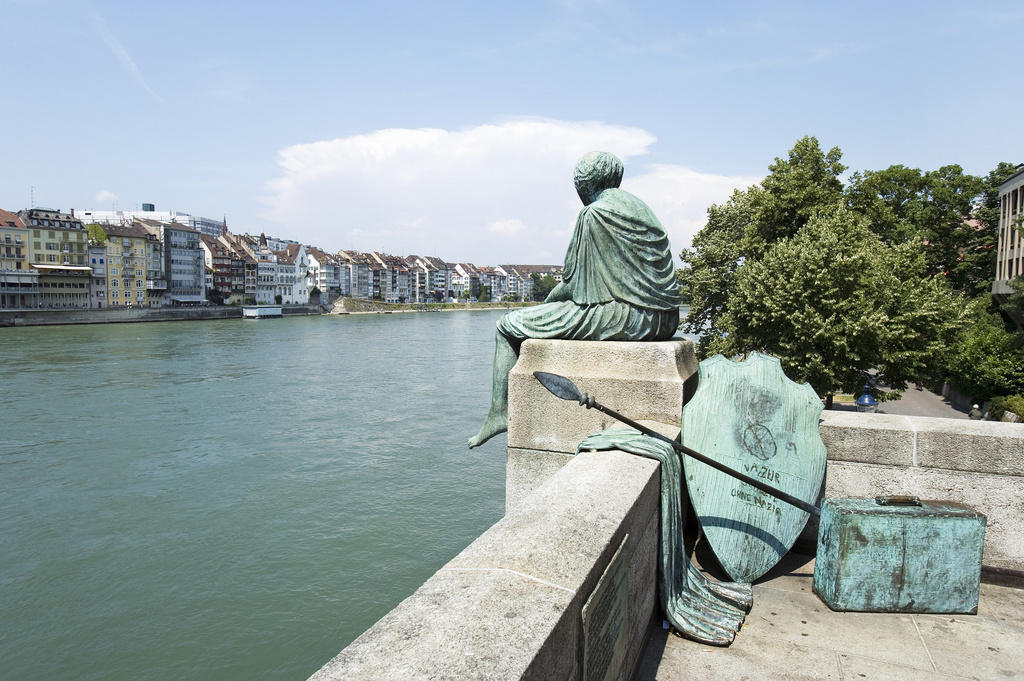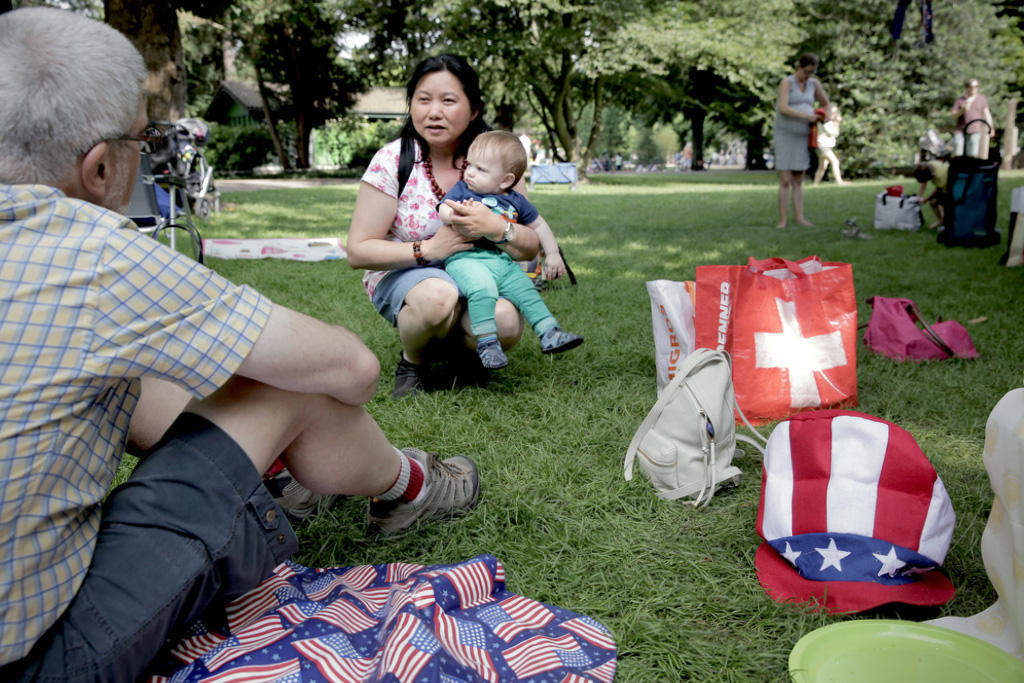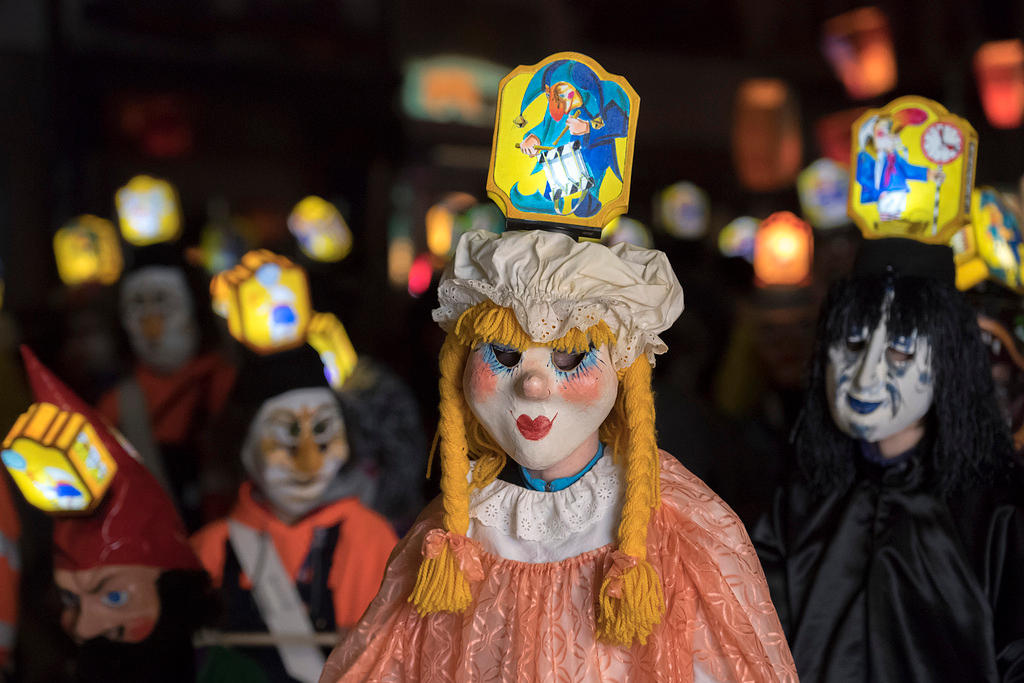What makes Basel such a good place to live?

Two expats living in Basel tell us why they think the Swiss city deserves to rub shoulders with Zurich, Sydney and Vancouver in the rankings for the world’s best places to live.
Basel was ranked joint tenth with Sydney in the Mercer annual quality of living survey for expats. It was the first time that the city bordering both Germany and France has been included in the survey.
It is the third largest city in Switzerland after Zurich and Geneva, with around 200,000 inhabitants – of which 35.7% are foreigners. It is a pharma industry hub, but also home to 40 museums.
Jacqueline Huwyler, 24, is half Swiss, but was raised in New Jersey, in the US. She arrived in August 2016 and is studying for a PhD in Egyptian Archaeology at the University of BaselExternal link.

I’d been to Basel a couple of times before to visit my family. I’ve always felt that the quality of life here is very high. In general, people in Basel seemed to have very happy and comfortable lives, and this was proved to me when I actually moved here. It also made more sense for my studies.
Did I experience culture shock? Not especially. However, I might have a unique circumstance because I’ve lived in a few different places. I personally found that Basel was very open for a returning Swiss citizen. My classes and life in general not as intensely regulated as I expected. Everyone in America talks about ‘oh Swiss time, you have to be on time, you can’t be late, you have no room for messing up’. Yet I feel like the expectations for my studies and work here are on par with what I have done before.
My father never taught me Swiss German. Instead I have been learning German myself. It’s difficult, but not impossible. I definitely wouldn’t want to be here without any German at all, but a lot of people – especially the younger generation – can speak a bit of English. Luckily, when I try to speak German people are usually very receptive and try and help me out.

More
All about Basel
One thing that really did shock me were the prices. I was living in Virginia last year for the start of another PhD and the tuition fees were incredibly high, but the living fees were practically nothing. Here it’s the opposite: my tuition is hardly anything – a couple of hundred francs per semester – but the cost of living is much higher.
I really enjoy sitting on the banks of the Rhine, especially in the summer. They have little grills set up for barbecuing, and also an open alcohol policy, so as long as you aren’t falling over drunk you’re allowed to have a nice cocktail. I have swum in the Rhine as well. Some people think it’s crazy, but it’s also quite popular for people my age. Basel organised a complete restoration and clean-up of the water, and now it’s supposedly clean enough to swim in.
Since childhood, my goal has always been to be an Egyptian Archaeology professor, so I’m pretty much bound by whatever my career dictates. If possible, I’d like to continue living in Basel after my PhD. Leiden is also an option. I absolutely intend to build my permanent home in western Europe, if not Switzerland.
Apart from the differences in prices, I’ve noticed a significant difference between the US and Swiss work mentality. In the US, there’s this sense that you work nonstop and if you are lucky you might get a short vacation, and you may even feel guilty for your decision. Sometimes employers even hold it against you if you request a vacation. Here it’s completely different. As a child, I would always hear stories of my aunts and uncles actually taking vacations and living a life outside their career. When I moved here, I found this to be true with many of my friends, family members and peers. This is a huge factor in one’s quality of life and a huge factor in my decision to stay.
Kathy Hartmann-CampbellExternal link, 62, is originally from Connecticut in the US. She is a freelance communication trainer and coach and does volunteer work dedicated to expat integration. She met her Swiss husband while travelling through Europe and has been in Basel for 35 years.

When I first arrived in 1982, I suffered from culture shock. I ended up having psychotherapy, but this really changed my life in a positive way. I thought ‘this is something I can pass on to others’ and I ended up gaining a psychotherapist qualification. It also led to me dedicating my public service volunteer work to expat integration and intercultural understanding.
I’ve always referred to Basel as a cosmopolitan village. We have world-class culture, but are village- sized, so you can get around anywhere by bike and there’s the feeling of seeing familiar faces, which is not for everybody, but it’s one of the big attractions of Basel, in my opinion.
The city has an extremely high quality of life. I think it’s wonderful that it’s tied with Sydney. We don’t have a beach really, but we have swimming in the Rhine. My husband and I were among the very few people who swam in the Rhine 35 years ago. Now it feels like virtually everyone in Basel hangs out at the Rhine. We also have a diverse international community which has grown due to pharma firms Novartis, Syngenta and Roche and smaller biotech companies.
Some people find the quietness a problem. But they realise there can be loud parties and dancing, but you have to find it. People also mention the rules, but I always point out that culture is a medallion that has a shiny side and a dark side and those two sides go together. The regimentation is what makes the place very organised and safe and a wonderful place to raise children.
Probably the biggest hurdle that’s mentioned most frequently is how do you get into contact with locals. So that’s why I have dedicated Basel ConnectExternal link to promoting expat integration through direct exchange with locals. It’s hard to mobilise the locals because they have their own relationships and they are not necessarily open to new ones. People who have had international experience, or have moved from someplace else in Switzerland to Basel are those most likely to come to our events.
I still remember my American guide book’s description of Basel from when I first came to Europe: ‘Basel is a grey industrial city located on the Rhine and the German and French border the only reason you’ll ever want go there is change trains at the train station!’ It’s good that Basel has remained largely undiscovered because it would be a risk of its losing its village qualities, even if we do get more river cruises and tour buses than in the past.

In compliance with the JTI standards
More: SWI swissinfo.ch certified by the Journalism Trust Initiative














You can find an overview of ongoing debates with our journalists here . Please join us!
If you want to start a conversation about a topic raised in this article or want to report factual errors, email us at english@swissinfo.ch.